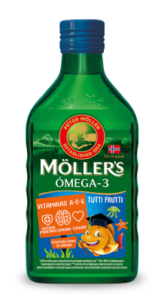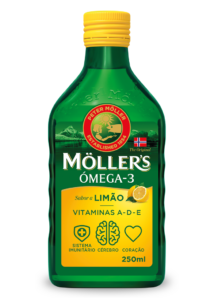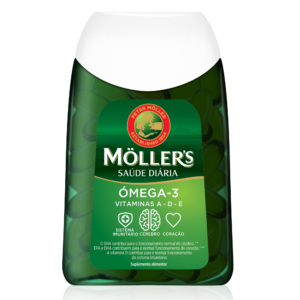The immune system is an essential part of all bodies, but why are some people sick more often than others? How does the immune system work and how can you keep it in balance?
Home » Mantenha-se saudável com um sistema imunitário forte

What is an immune system?
The main function of your immune system is to attack pathogenic microorganisms and protect the body from disease. “Microorganism” is a collective noun for bacteria, virus and fungi.
The reason we have an immune system is to protect ourselves from diseases and illness. Usually, this happens without damaging the body, but when someone has an autoimmune diseases, the immune system can attack the body’s own healthy cells and destroy them. This could happen because the cells change character as the immune system attacks everything it perceives as pathogenic.
Your immune system has two main functions:
- To protect your body from pathogenic microorganisms
- To remove damaged and dead cells and tissues
Your skin is part of your external immune system. It keeps foreign bodies away by being impermeable and waterproof. But if you have scratches and wounds, bacteria might penetrate your skin.
With the help of the mucous membranes, containing antibodies and cilia in the throat, lungs and nose, we cough up foreign bodies. Stomach acid reduces the number of microorganisms we ingest through food and drinks, and body fluids like tears, oil from sebaceous glands and saliva contain antibacterial enzymes that can reduce the risk of infections. These are all part of your external immune system.
How to have a good and smart immune system
In addition to having a good immune system, you also need to have a so-called smart immune system. A smart immune system finds the necessary balance to prevent it from attacking the body when cells shift character, known as autoimmune diseases.
Most people have a balanced and good immune system, but from time to time, you can go through a period when your immune system is weakened. There could be several reasons for this, such as a period of sleep deprivation or stress, both of which can negatively affect your immune system.
To avoid getting sick, as a result of a weakened immune system, there are some precautions you could take. Make sure you get enough sleep. Go to bed a little earlier if you know you have an early morning or have trouble sleeping. If you are under stress, you need to take some time to consider what it is that is stressing you out. Is there anything you can do to avoid feeling stress? Ask others for help, if possible.
Both you and your immune system benefit from daily exercise and fresh air, especially during stressful periods. Whether you go to the gym or for a walk outdoors, you have some time to yourself and you get some exercise.
Good (but not too good) hygiene is also a key factor. Many bacteria are actually good for you. Ironically, getting sick could actually help you stay healthy in the future. The immune system also benefits from the odd cold, allowing it to be better prepared next time illness strikes.
What can you eat to improve your immune system?
There are a lot of foods and supplements you can take to boost or maintain your immune system. Focus on produce that contains a lot of antioxidants and vitamins/minerals. Examples are fruits, vegetables, herbs, berries, nuts and spices.
More specific foods that benefit the immune system include oranges, prunes, mackerel, yoghurt, blackcurrants, Brazil nuts, canola oil, dark chocolate and products containing omega-3, such as cod liver oil. The vitamin D found in cod liver oil contributes to maintaining the normal function of your immune system.
What to avoid
There are some things you should avoid if you want a well-functioning immune system. In addition to stress, sleep deprivation and washing your hands too often – smoking may also weaken your immune system considerably. A poor diet with lots of sugar and periods of overexercising can also be contributing factors to ill health.
If you maintain a healthy lifestyle, with a good balance, your immune system will remain strong, helping you to fight off disease and illness.
What is good health?
Do you have a good lifestyle?
Lifestyle simply means the way in which you live. Health and lifestyle go hand in hand. You might feel you have a good lifestyle if you are physically active, eat healthily and generally experience a sense of wellbeing. Conversely, if you want good health you should also have a good lifestyle.
Physical activity is the major contributor to a good lifestyle, but diet, drugs, stress, sleep and social conditions are also play an important role. Being able to use the body properly to avoid injury also affects lifestyle. Physical activity can also prevent depression and help you to recover more quickly from mental illness, both of which obviously affect your lifestyle.
Diet can be a difficult topic for many. Perhaps you eat too much or too little or maybe you find it hard to know what foods to combine to have a balanced diet. It’s also important to eat food that contains important vitamins, minerals and dietary fibre, omega-3 and antioxidants. On top of all this, you also need to get enough energy, protein and the correct fatty acids. The requirement for these nutrients changes throughout your life. When you are older you also have different requirements than children and younger adults. Women also have different requirements than men. Pregnant and breastfeeding mothers also have special requirements.
When you get older, you lose muscle mass and your body requires less energy and therefore less food. You may lead a less active life than you did before, which is why you require less food. However, your need for minerals, vitamins and other nutrients remains the same. Of course, there are plenty of healthy and active older people, but when you reach 70 to 80 years of age, it’s easier to become ill, especially during flu season.
Some steps you can take to improve your lifestyle and health are to:
- eat a healthy and varied diet
- stay active
- watch your weight
- avoid too much alcohol and don’t smoke
- get enough sleep
- think positive
- practise good hygiene
What is good quality of life?
The World Health Organisation (WHO) defines quality of life as a state where the individual can realise their potential, cope with normal stressful situations, work in a rewarding and positive way, and be able to contribute to others and society.
Quality of life is a wide and somewhat diffuse concept that includes joy in, and a desire for, life. These are values that are rather felt than measured, which in turn are based on personal environment and choices. Quality of life doesn’t necessarily depend on being healthy or sick. It’s the moments between worries, sorrows, problems and ailments that matter. For example, if you have a chronic illness, a feeling of mastery can be important when talking about quality of life.
To sum up, quality of life is a combination of health, lifestyle, networks and social support. It’s about experiencing joy, meaning in life, satisfaction, security and a sense of belonging, as well as being able to use your strengths. It’s also about feeling interest in life, coping with everyday situations and a being committed to something or someone. If you have good quality of life, you will be able to cope better with the inevitable stressful situations in life.
Learn more
Programa de exercícios para idosos
Healthy Aging Healthy Bones
Dieta saudável durante a gravidez
Brain Healthy Aging
Boa saúde, estilo de vida e qualidade de vida – O que tudo isso significa?
Cod Liver Oil Healthy Aging








